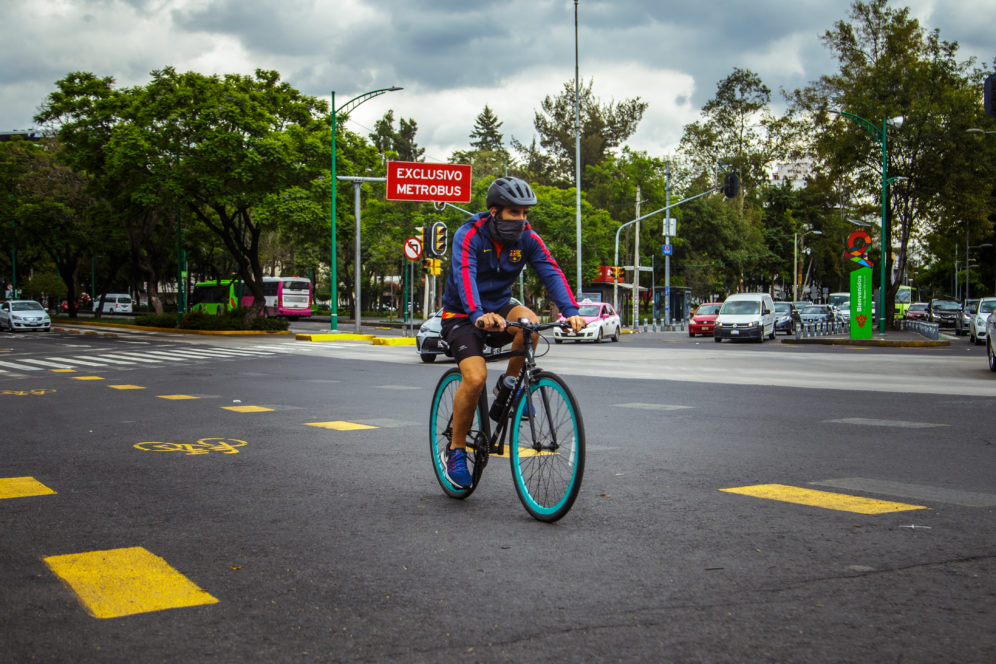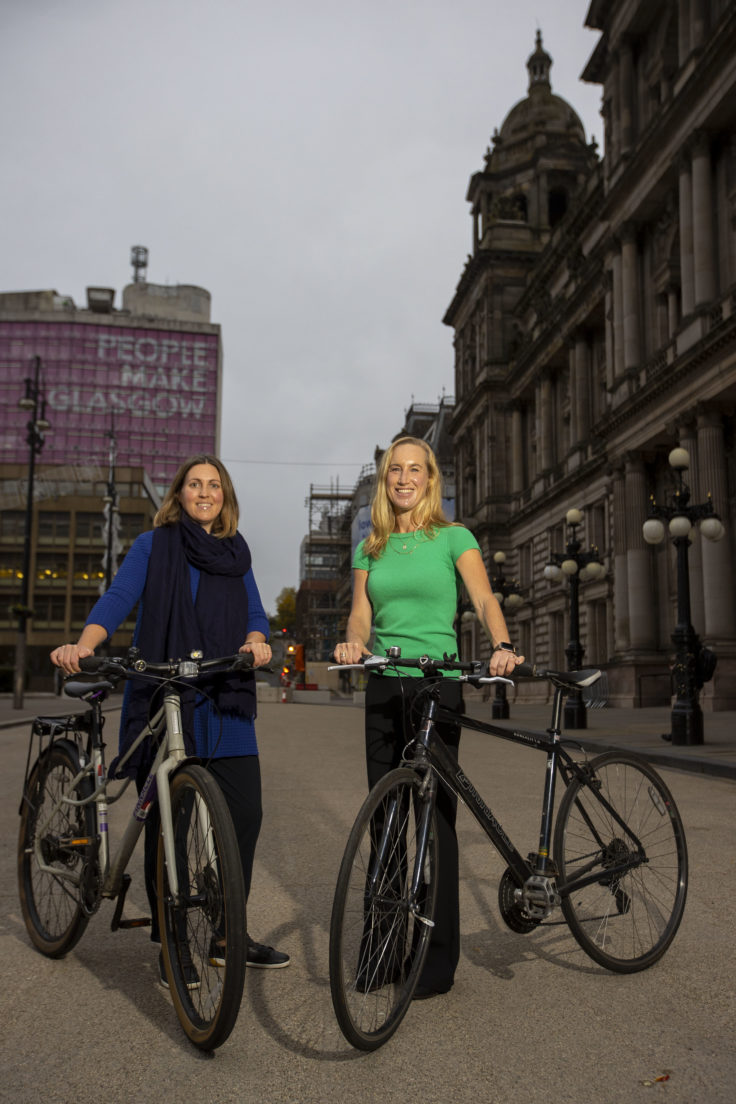
November 08, 2021
ITDP Launches Cycling Cities Campaign at COP26
The Institute for Transportation and Development Policy (ITDP) officially launches its global Cycling Cities Campaign while at the UNFCCC COP26 in Glasgow, a Cohort City of the Campaign.
The Cycling Cities Campaign aims to provide governments, planners, advocates, and others the tools to make cycling a safe and affordable transportation option in cities worldwide. Composed of a global coalition of cities, civil society organizations, and private sector partners, ITDP’s Cycling Cities Campaign calls for 25 million more people near safe cycle lanes by 2025.
The climate crisis cannot be solved without significantly reducing emissions from the transportation sector. World leaders in Glasgow, deliberating on various strategies to limit global warming, must prioritize sustainable transportation, and cycling in particular, as a serious emissions-reduction solution. Today, the Institute for Transportation and Development Policy (ITDP) is officially launching the Cycling Cities Campaign at the UNFCCC COP26 Conference in Glasgow. The event will highlight cities, like Glasgow, a member of the Cycling Cities Cohort, along with Merida, Mexico City, Jakarta, and Rio de Janeiro and 20 other cities that are on the vanguard of rethinking their streets to promote cycling and combat climate change.
Throughout the COVID-19 pandemic, cycling re-emerged as a popular form of resilient transportation. Without the usual loud and dangerous car traffic, street space was reclaimed by people. The boom in cycling, which has continued to grow, reflects a very real appetite for safe, convenient alternatives to cars that has gone underserved for far too long. Every city that added cycle lanes—even temporary ones—during the pandemic saw more people cycling.
Responding to this momentum and growing public and political support for cycling, ITDP is launching the global Cycling Cities Campaign. Cycling is one of the original zero emission forms of transport, contributing to better air quality and improved physical and mental health. Now is the time to take action to bring about these and other benefits for the climate and for people around the world.
The Cycling Cities campaign is dedicated to making cycling a viable transportation option for everyday trips in cities by providing an equitable and climate-friendly alternative to private vehicles. Safe, connected cycle lanes are critical to this vision, as are policies and educational campaigns that shift the perception of cycling. The campaign aims to bring safe cycle lanes to 25 million more people by 2025, and engage with at least 250 cities to improve infrastructure, prioritize funding, and build awareness to grow cycling.
Throughout the past few months, ITDP has brought together a diverse coalition of 25 cities and more than 30 global and regional partners committed to elevating cycling at the city, national, and global levels. Cycling Cities include: Addis Ababa, Ethiopia; Bengaluru, India; Bogota, Colombia; Buenos Aires, Argentina; Cairo, Egypt; Fortaleza, Brazil; Glasgow, Scotland; Guadalajara, Mexico; Istanbul, Turkey; Jakarta, Indonesia; Kampala, Uganda; Kigali, Rwanda; Kisumu, Kenya; Kohima, India; Los Angeles, United States; Merida, Mexico; Mexico City, Mexico; New Town Kolkata, India; Pimpri Chinchwad, India; Rajkot, India; Recife, Brazil; Rio de Janeiro, Brazil; San Pedro Garza Garcia, Mexico; Santiago, Chile; and Zapopan, Mexico.

Councilor Anna Richardson, Glasgow City Council Convener for Sustainability and Carbon Reduction mentioned, “Glasgow is delighted to be one of the founding 25 cohort Cycling Cities. The vision of our city is that walking, wheeling and cycling will be the first and natural choice for everyday journeys for people of all ages and ability. In aiming for significant modal shift, we recognize the contribution that active travel can make toward the city achieving its goal of net zero carbon by 2030, as well as contributing to the wider outcomes for the city around health and wellbeing, inclusion and equality, and wealth and inclusive growth. Increasing cycling will absolutely reduce pollution and improve our air quality and will better support our city’s contribution to a more sustainable planet.”
With campaign cities at different stages in their cycling journeys, knowledge exchange and ideas sharing is a major element of this effort. Capacity-building, coordinated actions, and open data tracking supplement knowledge sharing to ensure Cycling Cities are successful in redesigning streets for people, not cars. ITDP CEO Heather Thompson mentioned, “Building and transforming cities for people, not cars, has been a central pillar of ITDP’s mission for more than 35 years. With our Cycling Cities Campaign, we are helping cities reach climate goals and provide their residents with an active, safe, and necessary alternative to driving. This campaign has been years in the making and I believe that the time to act is now.”
Sign the pledge to join the Cycling Cities Campaign now!
